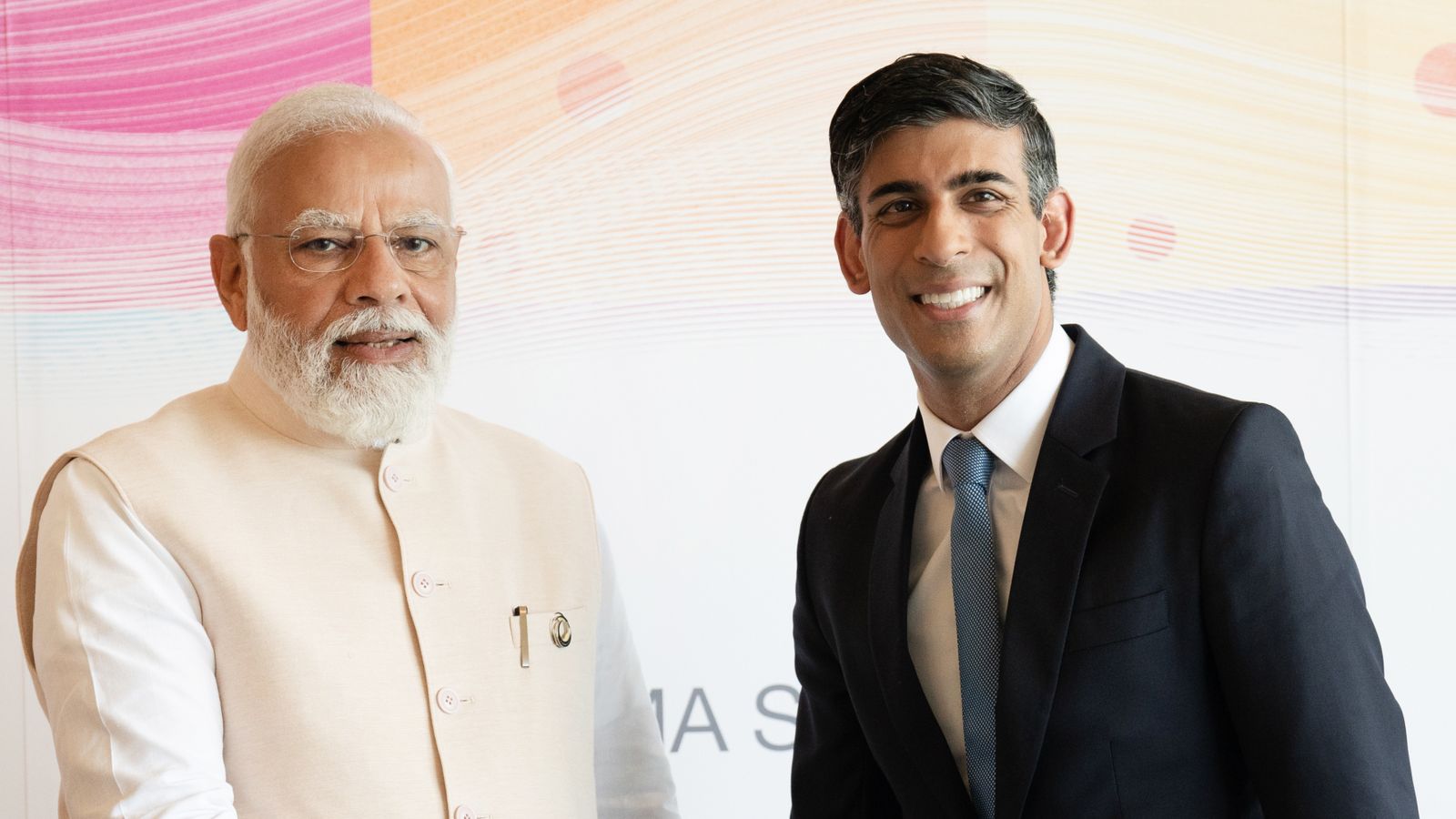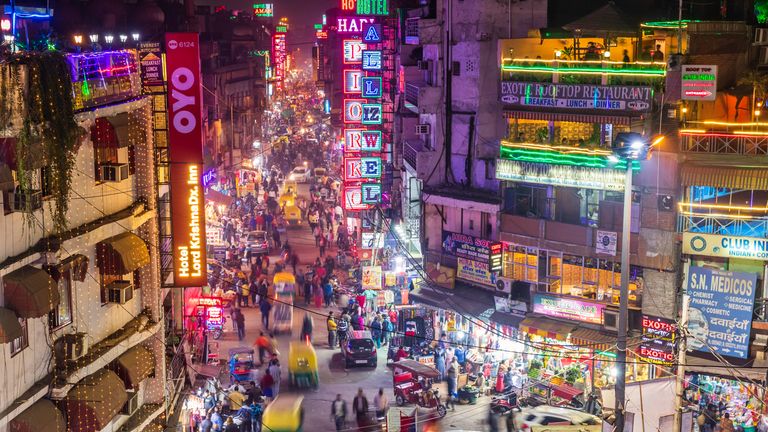Rishi Sunak says India trade deal is ‘not a given’ as he arrives in Delhi for G20 summit


Rishi Sunak has sounded a cautious note about the prospects of signing Britain’s biggest post-Brexit trade deal, saying it is “not a given”.
Speaking to reporters as he travelled to the G20 in Delhi, the prime minister said he would “check in” with Narendra Modi about the progress towards a free trade agreement.
But he played down the prospects of an imminent agreement, with hopes of signing it off on this – his first trip to India in office – seeming to have faded.
There are now hopes that after twelve rounds of negotiations, the two leaders may be able to reach agreement on another visit to India which is being discussed for later this year.
Mr Sunak said: “Without question, India is going to be one of the most significant countries geopolitically over the next years and decades and it’s vitally important for the UK to deepen our ties, particularly economically and more broadly, with India.
“So that’s why we’ve been working towards an ambitious and comprehensive free trade deal, but it’s not a given.
“These things are a lot of work and a lot of time. That’s why I’ve never put an artificial deadline on these trade deals, I’ve always said we shouldn’t sacrifice quality for speed. And we need to end up with something that works genuinely for both sides.
PM confirms RAF planes will fly over the Black Sea – politics latest
“Of course, every time I see Prime Minister Modi, it’s something we check in at, but that’s not the main purpose of this trip. There are lots of other things we’re going to be discussing.”
Advertisement
Back at home, Foreign Secretary James Cleverly defended the speed of trade deal negotiations with India, saying they were progressing “quicker” than talks with the EU.
“Our trade negotiations with India have actually progressed quicker than other trade negotiations, including the EU’s trade negotiations with India,” he said.
“We’ve always said we want to get the right trade deal with India because it’s an incredibly important partner, not just rush it through.
“We’ve got to recognise that influence… takes time.”
Please use Chrome browser for a more accessible video player
1:12
James Cleverly on India trade deal
He also told Sky News’s Niall Paterson the UK needs to “remind the world” that the war in Ukraine is an issue for those outside Europe. India has historic ties with Russia and has so far refused to denounce its invasion of Ukraine.
Mr Sunak will have a one-on-one meeting with Mr Modi on Saturday. He told reporters travelling with him that visiting India is “special” and “near and dear” to him, adding that he had been described by commentators as “India’s son-in-law.”
But a government source told Sky News that the “trickiest” issues in the deal are yet to be agreed. One of the issues is understood to be visas for Indian workers to come to the UK.
Trade deals typically include provisions for short-term business visas, but Mr Sunak has been clear that the UK’s points-based immigration policy will not change.
The prime minister said yesterday that “immigration is a separate issue” from trade and business, and that he believes net migration is “too high”.
A youth mobility scheme for 3,000 Indian workers per year to come to the UK was announced last year, but ministers have also announced plans to tighten rules for foreign students and their dependents, for which Indians are now the largest group.
Trade talks are understood to have focused on India lowering tariffs for British exports, including cars and Scotch whisky – for which India is the world’s biggest market.
But Mr Sunak has rejected the approach of his predecessor Boris Johnson and Liz Truss who set a deadline for a deal by Diwali in October last year.
He and Trade Secretary Kemi Badenoch have told cabinet colleagues they do not want a simple deal on goods, but a comprehensive deal which tackles issues around services.
The UK is said to be pushing for greater intellectual property rights for companies trading in India, where pharmaceutical companies produce cheap, generic drugs.
Please use Chrome browser for a more accessible video player

1:36
Why is an India-UK deal important?
It would be the first free trade deal India has done with a European country, and a coup for both leaders, who are facing elections next year.
Trade with India, Britain’s twelfth biggest trading partner, is worth £36bn a year, and supporters of a deal say it could open a big new market for British firms.
But key questions surround how it would work. Sam Lowe of Flint Global, who served on the UK’s trade advisory group, said high-level compromises were needed.
He said: “The negotiations are in a holding pattern at the moment, and what’s probably required now is senior political intervention from Sunak and Modi to change the red lines.
Read more:
A trade deal between the UK and India isn’t guaranteed any time soon – and this is why
India: Sectarian violence between Hindus and Muslims on the rise
“Intuitively, they should be able to reach an agreement. India has done trade deals with Australia and the UAE and it’s negotiating with the EU and Canada, at the moment.
“But only on term it deems acceptable, and that comes with challenges for UK firms, they may not get everything they want in terms of access to India.”
How firms would qualify for lower tariffs – the “rules of origin” regulations about how much of the product needs to be produced in the UK, and what paperwork firms will need – are yet to be finalised. These decisions will “matter hugely for businesses in terms of whether the benefits of the trade deal are real or not”, Mr Lowe said.
Indian ministers have sounded much more optimistic about a trade deal being done this year.
Finance minister Nirmala Sitharaman told a conference in Delhi last month, shortly after a visit by Ms Badenoch, that “I won’t be wrong in saying a free trade agreement is very close”.